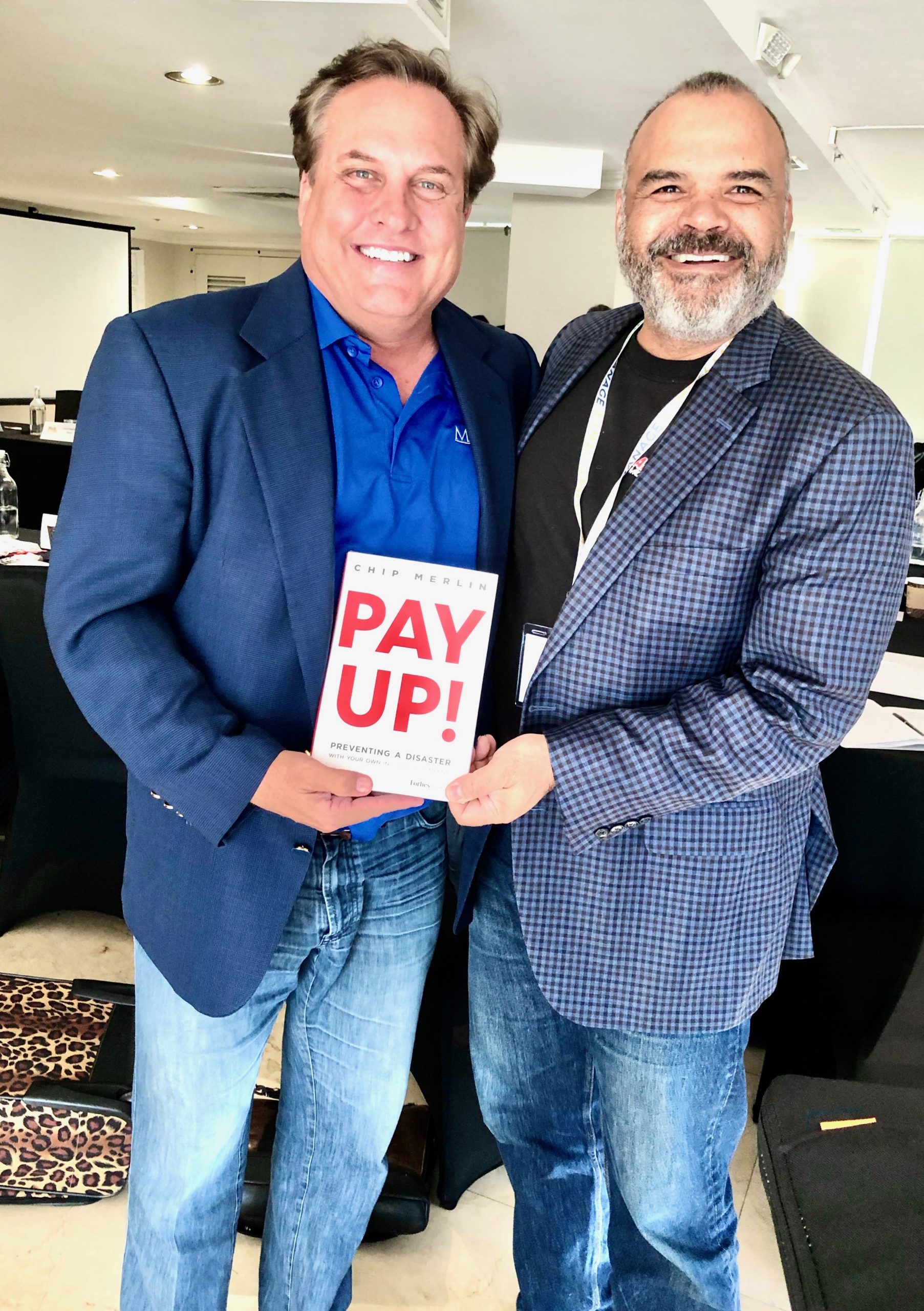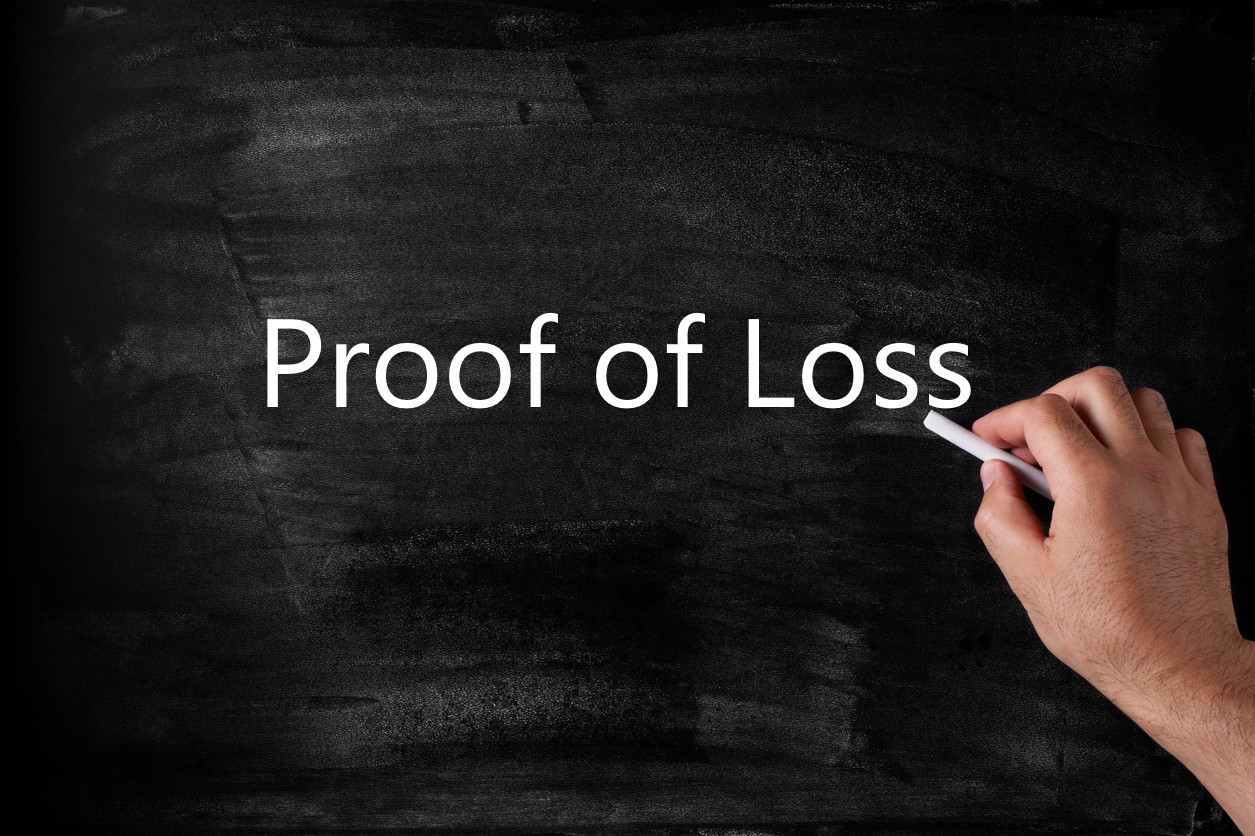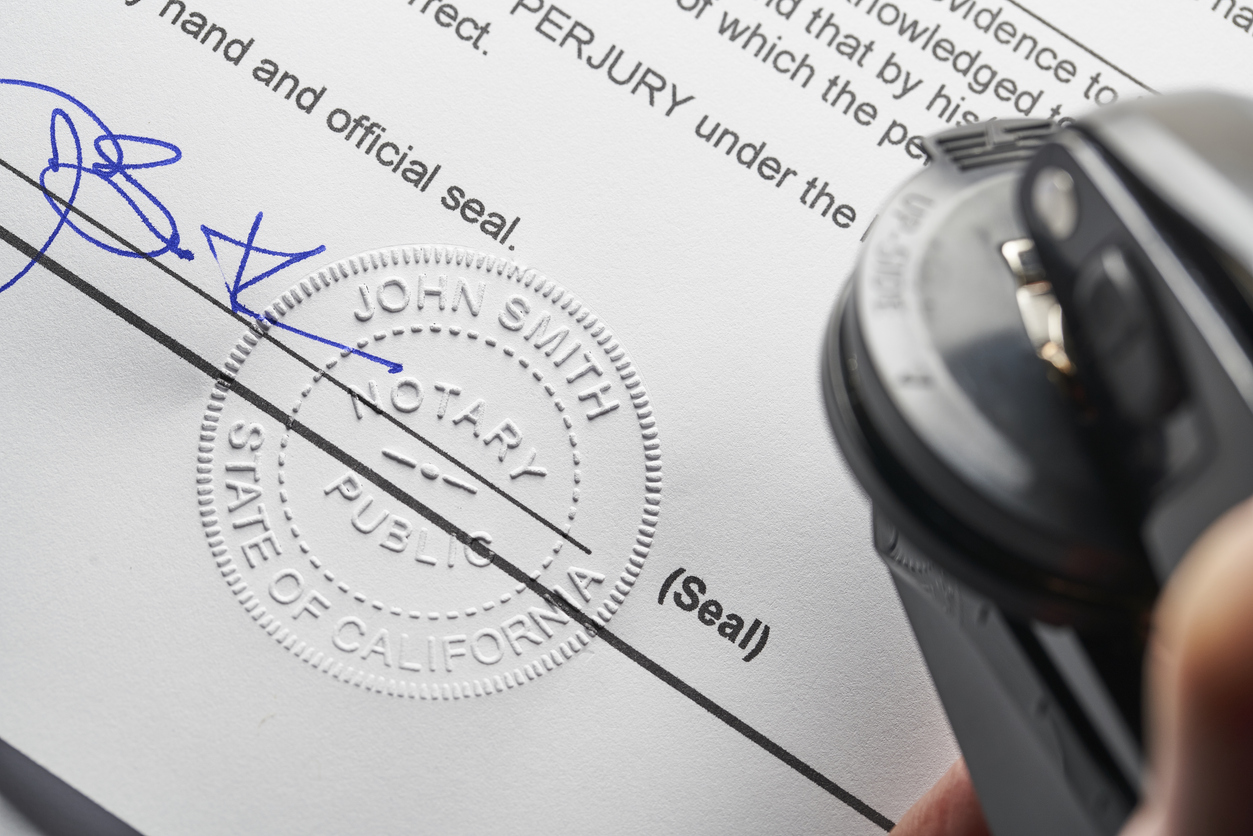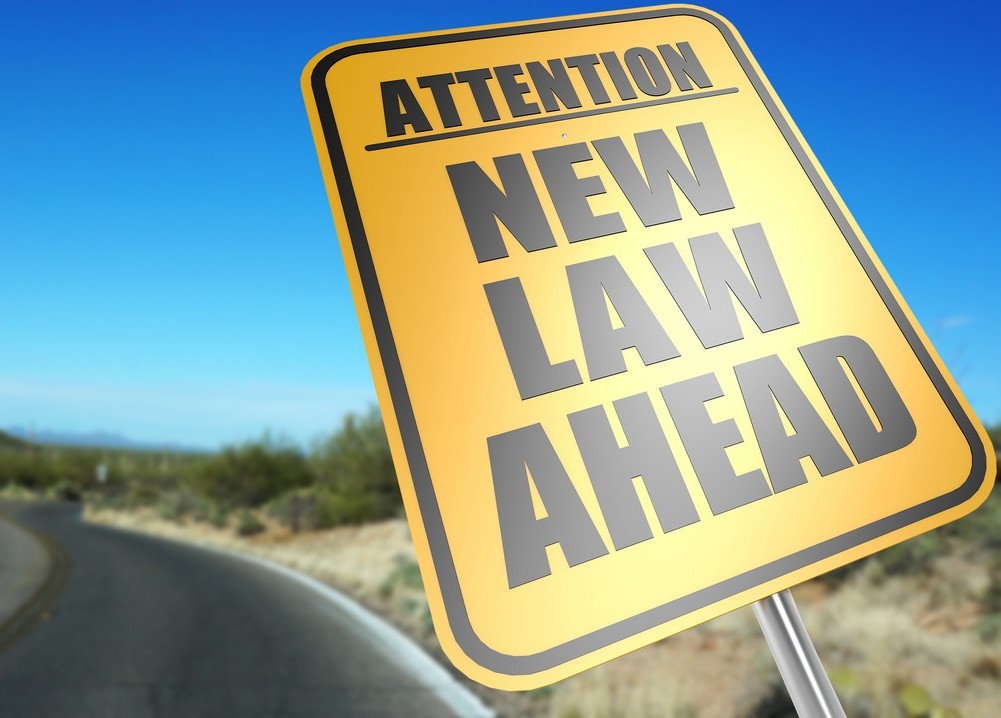Insurance agents play a very important part of making the insurance product work for everybody. Most people and business owners rarely think of all the risks they face. Insurance customers certainly do not study insurance policy forms and coverages which will soften the financial blow should one of those risks of loss become a reality. The experienced and professional insurance agent studies these topics and can be an important advisor to insurance consumers.
I was recently provided a statement from one insurance agent about his thoughts of public adjusters. I found it interesting and think that public adjusters and others may find it enlightening as to how this agent views public adjusters:
Dealing with Public Adjusters
Hurricanes and other communal disasters draw public adjusters to the affected areas like sharks are drawn to the smell of blood. Another public adjuster likened the influx to a pack of wolves stalking their prey.
Insureds (our customers) deal with “adjusters” following a loss, but they probably don’t know the differences among the three types of adjusters they may encounter. As the agent, you may want to give your clients a “cheat sheet” to help them understand the differences. The information you need to provide is minimal:
• Staff Adjusters: An adjuster employed directly by the insurance carrier.
• Independent Adjusters: Adjusters contracted by and representing the insurance carrier but not employed by the insurance carrier. These adjusters may work for independent adjusting firms or as one-man shops contracted by the insurance carrier as the carrier’s representative.
• Public Adjusters: Adjusters hired by the insured (the “you”) to assist in settling the claim. They offer expertise in preparing, filing and adjusting insurance claims. Public adjusters purport to manage every detail of the claim, working closely with the insured to provide the most equitable and prompt settlement possible. Essentially, a public adjuster represents the insured AGAINST the insurance carrier.Now Let’s Focus on Public Adjusters
Public adjusting firms often have very persuasive (or sometimes crooked) sales teams who depend on your insured not knowing or understanding the differences among the various types of adjusters. We must educate our insureds so they know who represents whom and at what cost. Don’t misunderstand, a good and ethical public adjuster can be a beneficial ally following a property loss in certain circumstances.
Because most insureds have never suffered a loss, they don’t know or even understand all the requirements or nuances of the claims process. Further, many agents don’t know all the “ins and outs” of property loss adjustment and may not be the best advocate for the insured. Agents are also hampered by the fact that they contractually represent the carrier – not the insured. Public adjusters know and are practiced in the claims process and aren’t hampered by a contractual relationship with the insurance carrier.
In reality, a good and ethical public adjuster can be a strong advocate for the insured. But not every public adjuster is good and even fewer are ethical. Some might say that only a few are both good and ethical.
When a major natural disaster strikes, count on at least some of your insureds being contacted by a public adjuster. Know also that a few of your insureds will contract with these adjusters – for good or bad. Agents must seize upon this opportunity to properly serve those clients who are approached by a public adjuster, mainly to help them avoid choosing a BAD public adjuster.
As the agent, you are the primary contact following a loss. You must take the opportunity when the insured reports the claim to disseminate key information to them, including what to prepare for when approached by a public adjuster. While it is the insured’s choice to hire or not hire a public adjuster, don’t let them contract blindly without knowing key facts regarding public adjusters, particularly which ones to avoid.
When your insured reports the property loss, warn them that public adjusters will soon be calling and advise them to notify you immediately if they are talking with a public adjuster. This gives the agency the opportunity to advise the insured regarding the: 1) need to even hire a public adjuster; and 2) keys to choosing the best public adjuster if the insured wants to hire one.
Arm your insureds with the 11 key questions to ask when considering a public adjuster:
• Does the adjuster have a state-issued public adjuster license? Public adjusters are generally required to be licensed in the state in which the property is located. Make sure the insured gets or sees a copy of the license.
• Where is the public adjuster based? Even if the public adjuster has a license issued by the state in which the property is located, is the adjuster domiciled in the state? There are state-to-state variations in coverage, if the adjuster does not commonly work in the affected state, he/she may not know all the laws and requirements.
• Is the adjuster a member of the National Association of Public Insurance Adjuster (NAPIA) or another professional association? Although membership in NAPIA does not guarantee the ethics of the public adjuster, members of the association are required to follow a strict code of ethics.
• Were references and qualifications provided? Yes, the insured’s life is in chaos following a catastrophic loss, but it’s still important to check references when considering a public adjuster. As the agent, you may want to check references on the insured’s behalf; in fact, this may be preferable because the same public adjusting firm may contact many of the agency’s clients. If the agency checks the firm’s references, every insured contacted by that firm must only call the agency for information. Again, make this about the services the agency provides. Report only what you are told by the references, do not slander the adjusting firm.
• Did the public adjuster attempt to pressure the insured into signing the contract? Statements such as, “Just sign this and we will take care of the whole thing for you,” sound innocuous, but this is actually a type of “hard-sell.” Remind the insured that even if a public adjuster is involved, the insured must still participate in developing the proof of loss. They still must do some of the work.
• Did the adjuster fully explain the contract? Remember, public adjusters charge a fee for their service, often between 10 percent and 15 percent of total claim payment. If this and other provisions of the contract were not clearly explained, this is a red flag. One public adjuster interviewed said that fees over 10 percent are unacceptable. Some states have a limit of adjustment fees.
• Did the adjuster ask for money up front? This is in NO way proper. If the public adjuster asks for money up front, do not contract with them.
• Did the adjuster make any guarantees about the amount the insured will get paid? There is no way a public adjuster can guarantee anything, warn insureds against contracting with any public adjuster who guarantees a specific outcome.
• Is the person who “sold” the service the same person who will work with the insured to adjust the loss? This is not an ethical consideration, but the actual adjuster and the sales person may have very different personalities. Also, is the sales person just a sales person or do they understand coverage and the claims process? The insured needs to know the qualifications of the assigned adjuster.
• Does the contract address monies received prior to the hiring of the public adjuster? If the insurance carrier pays the insured “emergency money” or some other payment before the public adjuster was hired, that amount should not be a part of the payment calculation.
• Does the public adjuster seem honest? This may be a hard judgement to make, but some public adjusters may give themselves away by telling the insured things they can or will do to “make sure” the insured gets a certain amount of money. An ethical public adjuster wants to assure the insured gets everything they are owed, and no more. They are not in the business to increase the loss for sake of a little greater payout.Once a public adjuster is hired, the agent must still provide guidance to the insured, not necessarily through the claims process (as that becomes the public adjuster’s role), but through the relationship with the public adjuster. Encourage the insured to notify the agency if a public adjuster is hired and get to know the adjuster, if possible. And most importantly, keep track of what the public adjuster is doing. An ethical public adjuster will welcome the relationship and happily converse with the agent as time allows; an unethical one will avoid agent involvement and any conversation with another insurance professional working for/with the insured. Keep your insured informed as well.
If the public adjuster appears to be harming the insured, inflating the loss or otherwise acting in an unethical or illegal manner, contact the department of insurance. The agent’s job is to protect the client, even when the client hires a third party.
Even though a public adjuster is involved, the insured is still your client. The public adjuster will eventually leave and will likely never again have contact with your insured. You are left to pick up the pieces if the public adjuster handles the claims process poorly or the hoped-for result didn’t occur. If you stay involved in the process even after your insured has contracted with a public adjuster, you are properly serving your client and hopefully helping them enjoy a better outcome.
Remember, who your insured hires is their decision; how you service your insured is your decision. Provide the service they need even if they don’t yet see the need. And lastly, don’t take the presence of a public adjuster personally, good ones are actually a valuable resource (and I know one really good one – but not many others).“
The photo above is of Larry Brown and me at a lawyers conference in Miami Beach last week. Larry is a guru tax lawyer and my tax lawyer. I guess that makes Larry Brown a “lawyer’s lawyer.”
I want to give a special shout-out for RJon Robbins and Chris Anderson for helping so many attorneys operate their law firms successfully and pushing me to finish the book. They encouraged me to write Pay UP! saying that it would show people my personal philosophy and passion for helping people. It truly is important to recognize that any of our success comes from the help and encouragement of others. I appreciate all of you help me and the dedicated team at Merln Law Group.





